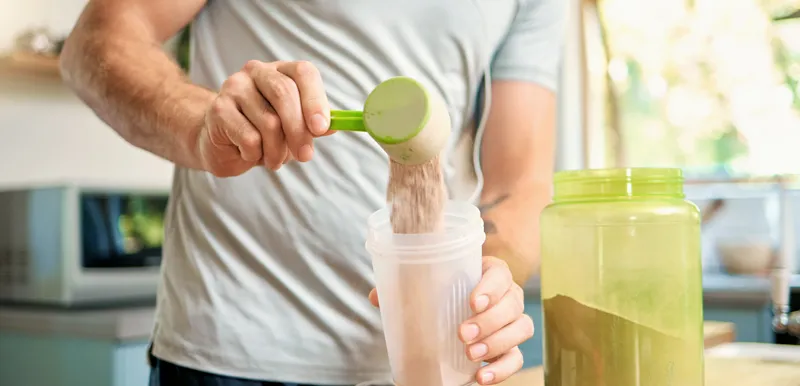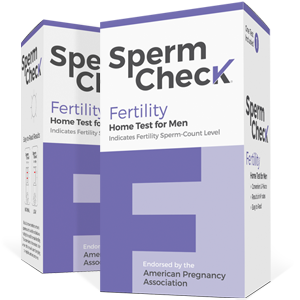
Fertility issues are often wrongly assumed to be only a woman’s concern; in reality, men contribute to approximately 50% of all fertility problems. As a man, your reproductive health can be crucial when it comes time to begin planning a family.
There are many different aspects of your life that you can alter to help improve your fertility, including:
- Physical Aspects (Diet, Exercise, Etc.)
- Mental Aspects (Sleep, Stress, Mental Health)
- Environmental Aspects (Exposure to Heat and/or Chemicals)
Here, you will learn about the many different physical changes you can make to increase your fertility. In addition to exercises, supplements, and foods to boost male fertility, you can gain an understanding of common male fertility issues and how the parameters for what is considered normal are measured.
Important Parameters for Male Infertility
One in every fifty men will exhibit less-than-optimal sperm parameters. The three main factors that determine sperm health are sperm quantity, morphology, and motility.
Sperm Quantity
A man’s sperm quantity – or sperm count – is the number of sperm in a single ejaculate. It is measured in millions of sperm per milliliter (mL) of semen. An average sperm count is 15 million sperm per mL or more; anything less would be considered a low sperm count.
Sperm Morphology
Sperm morphology (shape) is an essential metric for assessing male fertility. Abnormally shaped sperm are less likely to be able to swim and penetrate an egg’s outer layer; both functions are necessary for fertilization.
Sperm Motility
Sperm motility describes how well sperm can move. If a person has normal sperm motility, their sperm moves through the female reproductive tract to reach an egg at a normal pace. If a person has low sperm motility, their sperm does not move fast enough or far enough to fertilize an egg.
Exercises to Boost Male Fertility
Engaging in regular physical activity not only improves your overall health but can also enhance sperm health, including sperm count, morphology, motility, and more. Here’s how different forms of exercise can boost male fertility.
Moderate Aerobic Exercise
Consider adding aerobic exercises into your routine, as they can improve fertility. Some common aerobic activities include:
- Jogging
- Swimming
- Cycling
- Tennis
- Volleyball
A 2017 study shows that several parameters – including sperm count, morphology, and motility – were higher in men that participated in aerobic exercise when compared to less active men.
Resistance Training
Resistance training is proven to help increase testosterone levels, and normal testosterone levels are important for sperm production. Men with lower testosterone levels and less-than-ideal sperm counts can sometimes boost their fertility by simply implementing resistance training into their regimen.
Remember that balance is key. Excessive exercise can decrease testosterone, thereby hindering male fertility.
Supplements to Boost Male Fertility
Several dietary supplements have been linked to improved male fertility. Some supplements and their proven benefits include:
| Supplements | Functions |
| L-carnitine (LC) | Improves Sperm Motility |
| Coenzyme Q10 (CoQ10) | Improves Sperm Count, Motility, and Morphology |
| Zinc | Improves Sperm Count and Motility |
| Selenium | Improves Sperm Count, Motility, and Morphology |
| Vitamin C and E | Reduces Sperm DNA Damage |
Source: National Library of Medicine
Foods to Boost Male Fertility
Food plays a more prominent role in male fertility than some people may realize. Not only can a person’s diet affect their general health, but it may play a hand in either hindering or boosting one’s fertility. Those looking to improve their fertility should incorporate the following:
| Helpful Foods | Benefits | Functions |
| Fruits and Vegetables | Rich in Antioxidants, Vitamin C, and Vitamin E | Reduces Sperm DNA Damage |
| Oysters, Beans, Nuts, Crab, Lobster, and Whole Grains | Rich in Zinc | Improves Sperm Count and Motility |
| Brazil Nuts, Tuna, Sardines, and Shrimp | Rich in Selenium | Improves Sperm Count, Motility, and Morphology |
In addition to incorporating certain beneficial foods into your diet, there are other foods that a person looking to increase their fertility should limit, including the following:
| Foods & Drinks to Limit | Drawbacks |
| Soda, Coffee, and Tea | Caffeine intake may negatively affect male reproductive function. |
| Alternative Sweeteners | Alternative sweeteners can cause abnormalities in sperm motility, morphology, and sperm DNA. |
| Store-Bought Baked Goods, Margarine, Processed Meats, Pastries, Chips, Etc. | Food containing high amounts of trans fats can negatively impact testosterone levels, sperm count, and motility. |
Sources: National Library of Medicine, International Journal of Fertility and Sterility, Oxford Academic
Boosting male fertility can require a multifaceted approach, encompassing exercise, supplements, and consuming the right foods and drinks. Remember to always consult your healthcare provider before implementing any significant changes to your diet or fitness routine. They can provide personalized guidance based on your health status and needs.
Struggling with infertility and need answers?
An at-home sperm test from SpermCheck can help you know your sperm levels and discover the best next step in your fertility journey. Order your SpermCheck Fertility test today.




